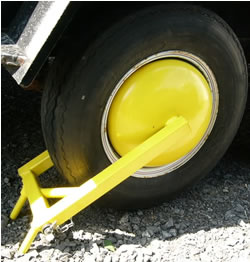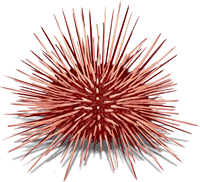| français | English | Cymraeg |
|---|---|---|
| le flûteau; le flûtiau; le pipeau | penny/tin whistle | chwiban dun; chwisl dun |
| le sifflet | whistle (object) | chwibanogl; chwiban |
| siffler; siffloter | to whistle | chwibanu |
| siffler un air | to whistle a tune | chwibanu alaw |
| le sifflement | whistle (sound) | chwiban |
| pousser un sifflement | to give a whistle | chwibanu |
| la cornemuse | bagpipes | pibgod; bagbib; brochbib |
| jouer de la cornemuse | to play the bagpipes | chwarae’r bibgod/fagbib |
| le biniou | breton bagpipes | pibgod/bagbib Lydewig |
| une régime des bananes | a bunch of bananas | bwnsiad bananas |
Category: French (français)
Les mots de la semaine
| français | English | Cymraeg |
|---|---|---|
| le gourvernail | (ship’s) wheel | llyw (llong) |
| le volant | steering wheel | llyw; olwyn lywio |
| le sabot de Denver | wheel clamp | clamp olwyn |
| la pince; l’étau à main (m) | clamp | clamp; creffyn; craff |
| serrer; cramponer | to clamp (hold firmly) | clampio; gwasgu |
| fixer qch à qch | to clamp sth to sth | clampio rhyb i ryb |
Un sabot de Denver

I discovered yesterday that in French a wheel clamp is known as a sabot de Denver (“Denver hoof/clog/shoe/boot”), and wondered what Denver has to do with wheel clamps.
On Wikipedia is explains that such devices were first used in Denver, Colorado, and are known as a wheel boot, parking boot or Denver boot in the USA. The wheel boot was invented by Frank Marugg in 1944 and first used in 1955 in Denver. One type of wheel clamp used in the UK was originally called the Preston, after Trevor Whitehouse, the inventor’s home town. They were first used in 1991 [source].
Are they used in other countries?
If so, what are they called?
Les mots de la semaine
Ça fait longtemps depuis j’ai mis des mots de la semaine ici. C’est parce que je ne suis pas allé au groupe de conversation français depuis quelques mois, sauf cette semaine et la semaine dernière.
D’habitude je joue dans un groupe de ukulélés les jeudis soirs, mais ce groupe n’a pas recommencé encore. Jusqu’à octobre de l’année dernière le groupe de ukulélés a commencé à huit heure du soir et c’était possible d’aller au group de français pour une heure avant d’aller au groupe de ukulélés, mais maintenant ce groupe commence à sept heure ou à sept heure trente et ce n’est plus possible d’aller au groupe français – ce n’est pas possible d’être en deux endroits au même temps, même pour moi, et je préfére jouer l’ukulélé.
Le Mardi de cette semaine je suis allé à un group de conversation français à Liverpool. Un ami a trouvé ce groupe sur Meetup, et il m’a demandé si je voulais y aller. J’ai pensé pourquoi pas, et c’était bon, et on a réncontré des gens intéressants là.
Et voilà les mots de la semaine :
| français | English | Cymraeg |
|---|---|---|
| faire la lessive | to do the laundry | golchi dillad; gwneud y golch(i) |
| le panier à linge | laundry basket | basged ddillad |
| le fusible | (electrical) fuse | ffiws |
| la boîte à fusibles | fuse box | blwch ffiwsiau |
| le télérupteur | trip switch | switsh tripio (?) |
| declancher | to trip (a switch) | gollwng; tripio |
| (traverser) la crise de la quarantaine/cinquantaine | (to go through) a midlife crisis | (cael) argyfwng canol oed |
| s’inscrire / s’abonner (à) | to subscribe (to) | tanysgrifo (i) |
| la liberté de parole / d’expression | freedom of speech | rhyddid llafar / i lefaru |
| être dégouté(e) | to be gutted (disappointed) | siomedig; wedi’ch siomi |
| la fondation | (charitable) trust | ymddiriedolaeth |
| le fidéicommissaire; l’adminstrateur | trustee | ymddiriedolwr |
| les lunettes (fpl) protectrices | (safety) goggles | gogls (diogelwch) |
| les lunettes de natation/plongée | swimming/diving goggles | golgs nofio/plymio |
| le troglodyte | wren; cave dweller | dryw; ogofwr |
| ferrovipathe; monomaniaque | train spotter | nodwr/gwyliwr trenau |
French & English Language Exchange
I went to the French & English Language Exchange group in Liverpool last night – a friend found it on Meetup, decided to see what it was like, and asked me to come along. They meet twice a month at Thomas Rigby’s, a pub in the centre of Liverpool, and last night there were 30 or 40 people there, including some French people – far more than ever go to the Bangor French conversation group. I talked to various people from England, Brazil, China and New Zealand in English, French, Mandarin and Portuguese. So it was worth going, though it is quite a long way to go – about an hour and a half from Bangor – and I might go back there occasionally.
Do you meet up to find / arrange similar groups?
Does it work well for you?
There are very few groups on meet up in the Bangor area at the moment, but I might set one up.
Blwyddyn newydd dda!
Happy New Year!
Bloavezh mat / 新年快樂 / Blydhen Nowydh Da / Šťastný nový rok / Gelukkig Nieuwjaar / Happy New Year / Bonne année / Einen guten Rutsch ins neue Jahr / Athbhliain faoi mhaise daoibh / Felice anno nuovo / 新年おめでとうございます / Blein Vie Noa / Feliz Ano Novo / С Новым Годом / Bliadhna mhath ùr / Срећна Нова Година / ¡Feliz Año Nuevo! / Gott nytt år / Blwyddyn newydd dda, and so on!
Language acquisition
I spent Christmas with my family at my brother’s house in Devon in the south west of England. His daughter is now 20 months old and it’s fascinating to see how she’s acquiring language.
The last time I saw her was at Easter this year when she was nearly a year old. At that time she was able to say a few words, but now she has a lot more words and little phrases, and understands more as well. Most of her words are in English, but she also uses some Russian ones (her mother is Russian) such as сок (juice), and even some BSL signs, such as thank you, picked up from baby signing classes.
As well as English and Russian, she’s picking up some French from the French nanny who looks after her a few days a week while her mother is working. So she is on the way to becoming a polyglot. Whether she’ll be as enthusiastic about languages as I am remains to be seen, but it will be very interesting to see how her language develops.
Do you have or know children who are being raised bilingually or multilingually? Do you have any tips and stories you’d like to share? Guest posts on this topic are very welcome.
Hedgehogs and Urchins

I discovered today that sea urchins (echinoidea) are known as zee-egels (sea hedgehogs) in Dutch, and that they used to be known as sea hedgehogs in English as well. They have similar names in other languages, for example, in German they are Seeigel (sea hedgehogs), in French they are oursins or hérissons de mer (sea hedgehogs) and in Spanish they are erizos de mar (sea hedgehogs).
The word urchin comes from the Middle English word yrichon (hedgehog), from the Old North French word *irechon, from the Old French herichun (hedgehog) – in Modern French hedgehog is hérisson – from the Vulgar Latin *hericionem, from the Latin ericius (hedgehog), from the Proto-Indo-European root *ghers- (to stiffen, bristle, stand out). From the same root we also get such English words as gorse, hirsute, horror and ordure.
The word urchin is apparently still used for hedgehog in some English dialects such as Cumbria, Yorkshire and Shropshire. It came to refer to people who looked or acted like hedgehogs from the early 16th century, and to poor, ragged youths from the mid 16th century, though this usage didn’t really take off until the late 18th century. Sea urchin was first used in the late 16th century.
Sources: Online Etymology Dictionary and Indo-European Lexicon
Les mots de le semaine
| français | English | Cymraeg |
|---|---|---|
| instable | precarious (ladder) | simsan; sigledig; siglog |
| précarie | precarious (situation; existence) | ansicr |
| périlleuse | precarious | simsan; sigledig; siglog |
| le navet | turnip | meipen; erfinan |
| le rutabaga | swede | swedsen; rwden |
| le potiron; la citrouille | pumpkin | pwmpen; pompiwn |
| chirurgien | surgeon | llawfeddyg |
| la (veste à) capuche | hoodie | hwdî |
| bouder; faire la tête | to sulk | sorri; pwdu; mulo |
| la bouderie | sulks | pwd; soriant; sorri |
| elle boude; elle fait la tête | she’s sulking / she’s in the sulks | mae’r pwd arni; mae hi ‘di sorri; mae hi yn y pwd |